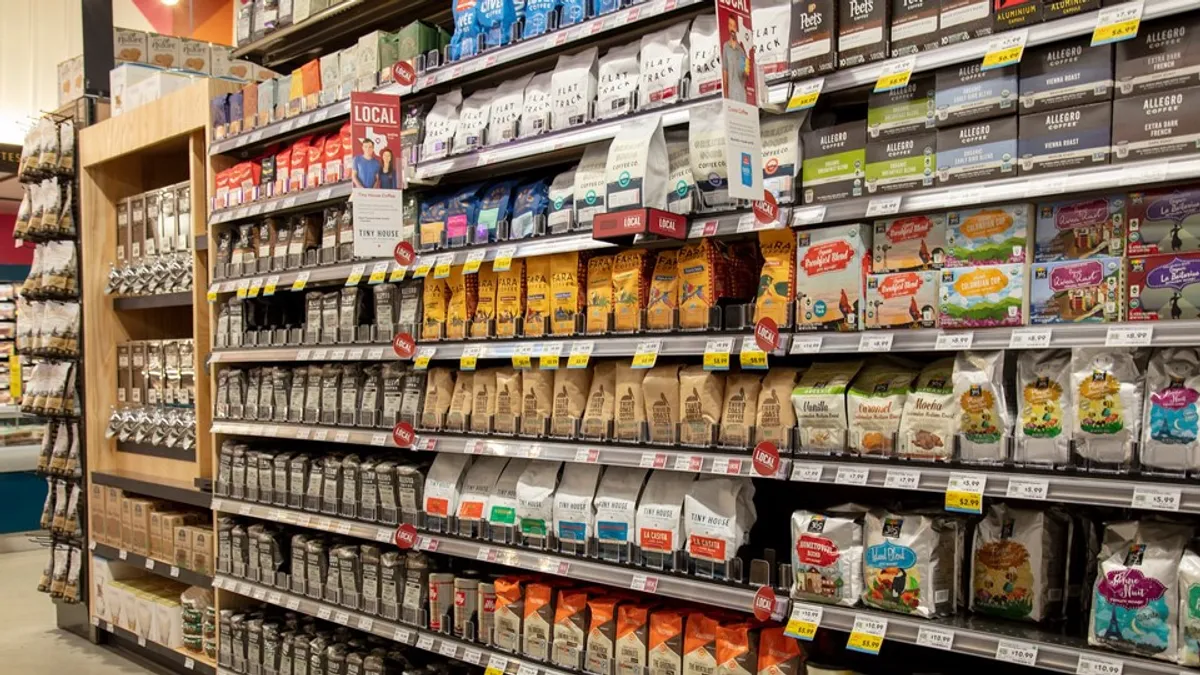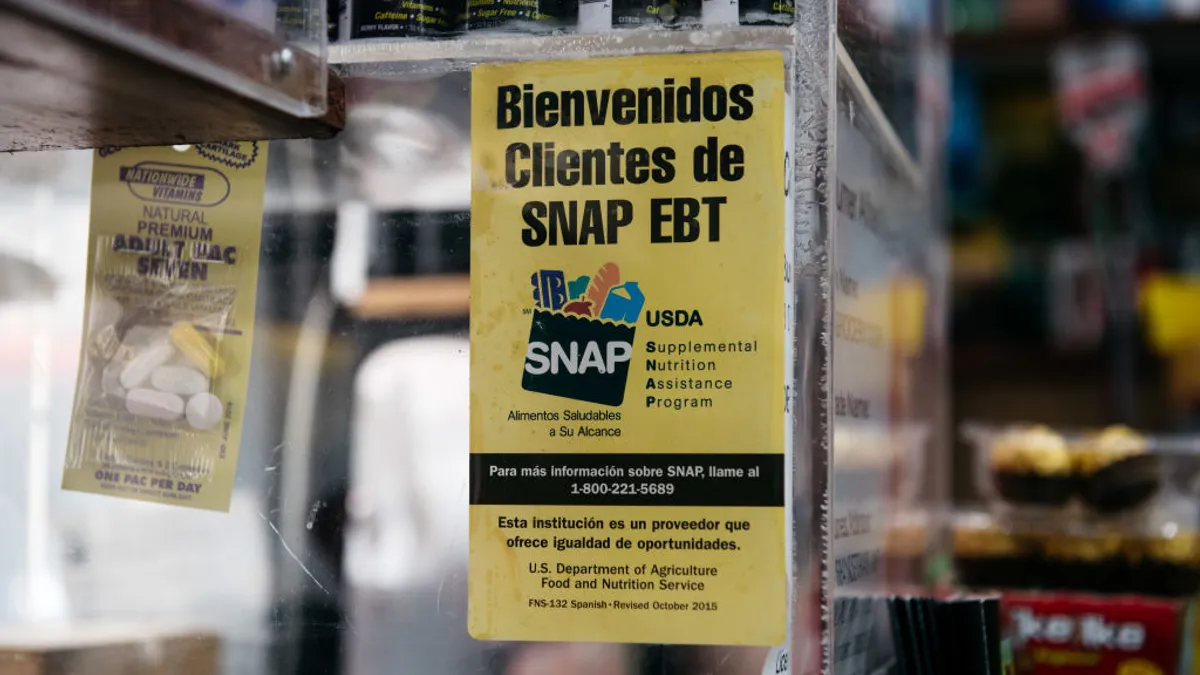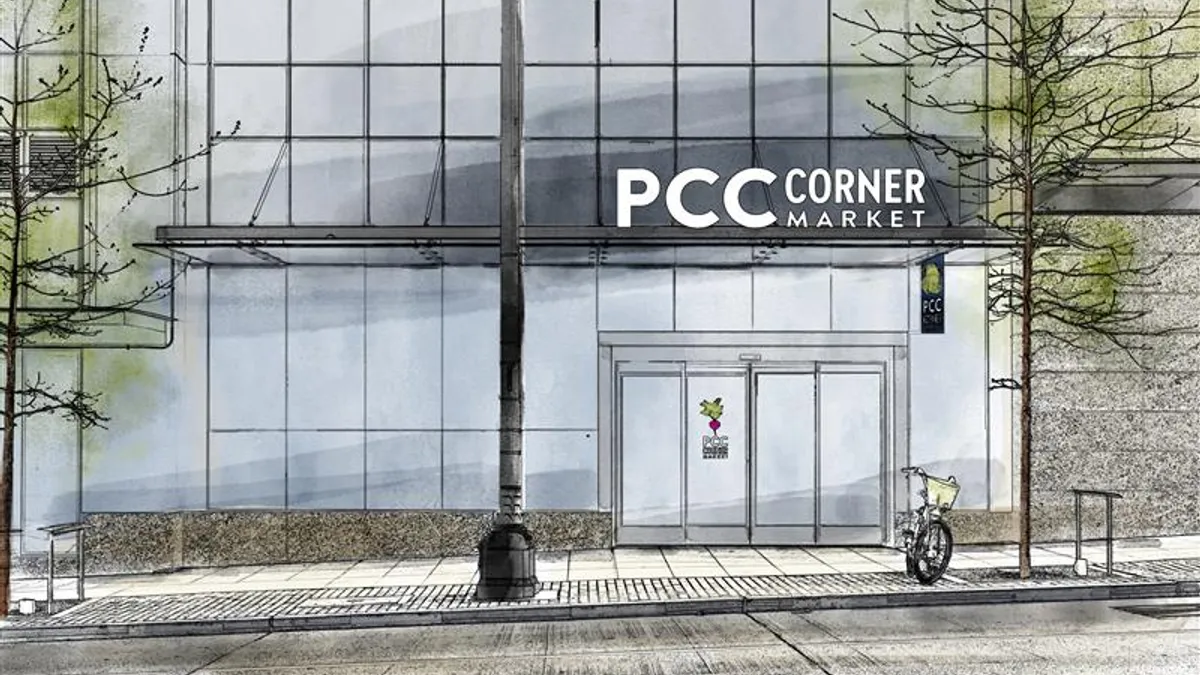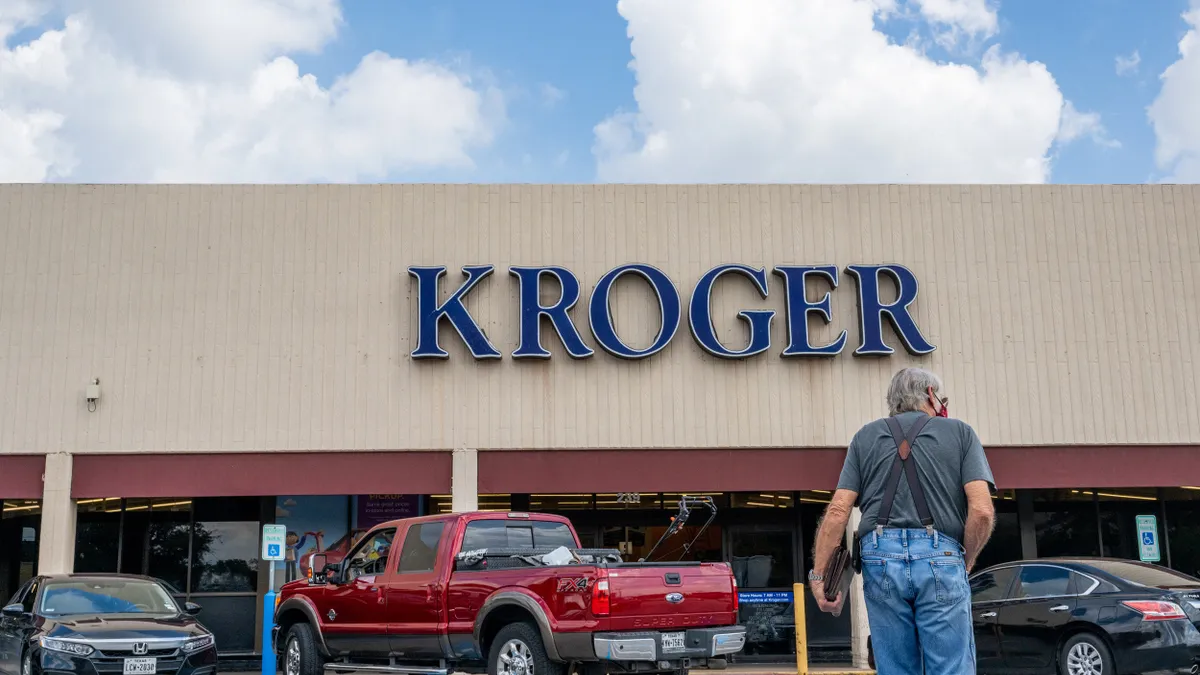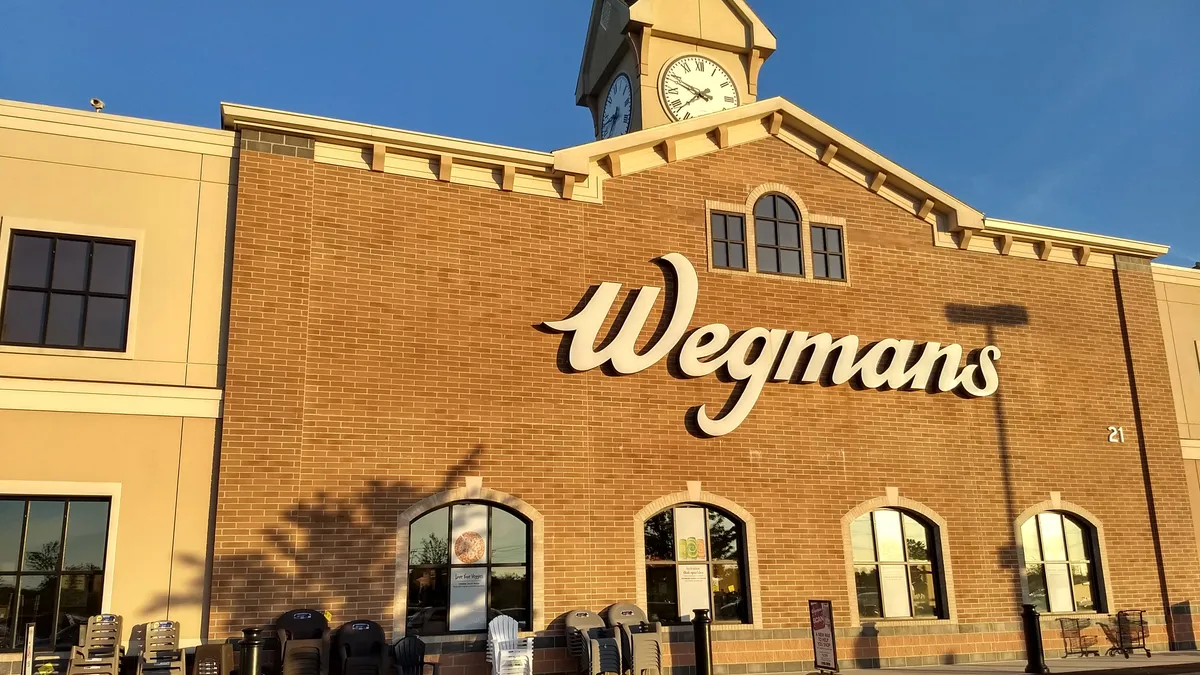"On Special" is a monthly look at top store categories and the retailers that specialize in them.
Whether it's cold brew or drip, espresso or instant coffee, shoppers’ morning routines have shifted as more people work from home, with many investing in pricey appliances that signal a long-term shift to at-home brewing.
This has been good news for the packaged coffee industry, which has seen year-over-year sales gains along with other center store departments. It’s also provided a much-needed lift to Whole Foods, whose roots in organic, specialty coffee run deep. Dark and medium ground coffee has led the way in sales for Whole Foods recently, category merchant Julie Bandin said. But shoppers have also shown they’re willing to try new things like making cold brew and stirring up whipped coffee.
Some notable changes in the grocer’s private label coffee, including a packaging rebrand, have also boosted sales, said Bandin. The result is a category that’s benefiting from shifting consumer habits, as well as a splash of innovation.
 What's trending?
What's trending?
Bandin said large pack sizes, like 24-ounce bags and canisters of coffee, are selling particularly well as shoppers continue to consolidate trips and prioritize stock-up shopping.
"Because of pandemic, you're seeing consumers make less frequent shopping trips and they're trying to bulk up on items so that they can come in less frequently," she said.
 Best-sellers
Best-sellers
Both fair trade and Rainforest Alliance certified coffees have posted double-digit sales growth at Whole Foods over the past year, according to a company spokesperson.
Driving that growth is a recently completed initiative to certify all store brand coffee, including Whole Foods 365 and Allegro, under at least one of those standards, which include benchmarks for worker treatment and environmental conservation. Bandin said the push had been ongoing for some time but ramped up in 2019, and included working closely with suppliers to complete the process amid the pandemic.
The initiative reflects the popularity of ethical and sustainability standards among Whole Foods customers. According to a 2019 report from the Natural Marketing Institute, the chain's customers are twice as likely as average consumers to buy fair trade products.
"We've seen a shift in consumer purchasing that tells us that customers want more transparency into responsible sourcing efforts both ethically and environmentally," Bandin said.
Private label innovation
In addition to the new third-party certifications, Whole Foods has seen sales volumes increase with the redesign of its 365 private label packaging throughout the store. Unveiled last year, the label refresh was the first in several years and incorporated a "whimsical personality" and a "clean, colorful aesthetic,” according to the company.
Whole Foods recently revised its standards for eggs, including private label, to go "beyond cage-free" and source from farms that allow hens outdoor access and room to roam. By the end of this year, the grocer will also feature fair trade or Rainforest Alliance certification across its private label packaged tea portfolio.
Waking up to whipped coffee
A TikTok video showing viewers how to make “dalgona coffee” quickly went viral last spring, prompting recipe sites across the internet to offer their own version of the dessert drink, which requires whipping instant coffee with sugar and water.
The craze offered something new for pandemic-frazzled consumers. And it significantly boosted sales of instant coffee at Whole Foods.
“We saw our instant coffee fly off the shelf,” said Bandin.
Bulk bin sales are down
The specialty grocer has long offered bulk bins filled with a variety of loose coffee beans. But during the pandemic, with safety concerns high among shoppers, sales have dropped.
“We saw a shift away from bulk coffee just because of how open it is,” said Bandin.
Like other self-service departments, bulk bins had to shut down in many jurisdictions at the outset of the pandemic. They are reemerging with new sanitation measures in place, including staffing workers responsible for scooping ingredients, but questions remain over the long-term viability of bulk bins.
The at-home trend looks set to continue
Bandin said Whole Foods expects to continue to see the uptick in home coffee making drive sales of packaged coffee. She said the retailer is working on developing new products and marketing materials in the category to further take advantage of the trend, but declined to provide details.
If sales of home equipment are any sign, consumers are invested in making their own coffee long term. According to a report by the Specialty Coffee Association and payment technology provider Square, consumers spent 11% more in 2020 on coffee-making appliances, paying a median price of $139.
“Our consumers want to take their ground coffee or grind their own coffee at home because they have the time to do it,” Bandin said. “That’s where we’re really seeing that shift in sales for these types of coffees.”
Getting back to traveling
The pandemic has curbed the ability for Whole Foods’ buyers and managers to travel abroad to visit their suppliers, Bandin. That’s been particularly tough in a category like coffee, which requires strong connections across a complex global supply chain.
Bandin noted that she traveled last February, just before the virus began spreading rapidly, to Nicaragua to visit coffee suppliers. There, she met local growers, learned about the 21 steps in the retailer’s coffee supply chain and came away with greater understanding of the work that goes into each roast.
"Those are some of, of course, my favorite trips because they provide education not only on the market but also the impact on the ground level," Bandin said. "Hopefully once the pandemic is over we're able to travel again."
The state of packaged coffee in the U.S.
- In-store sales of packaged coffee surged more than 30% last March after seeing year-over-year declines the previous two months, according to Nielsen data. Monthly sales growth continued throughout the rest of the year.
- Store sales of packaged coffee sales are off to a strong start in 2021, with dollar sales up 10.5% in January and 8% in February, according to Nielsen data.
- Consumers have found other ways to enjoy coffee at home during the pandemic. Coffee subscription sales grew 109% last year while growler sales increased 129%, according to the report from Square and the Specialty Coffee Association.



